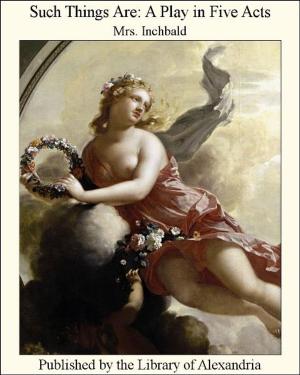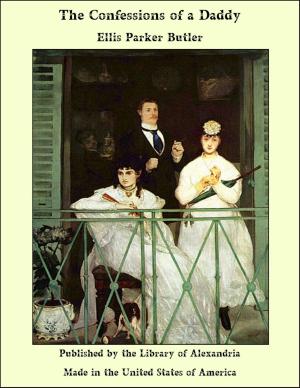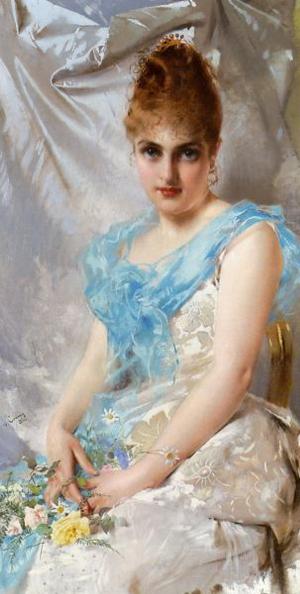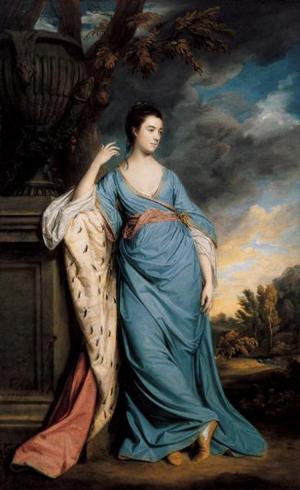| Author: | Fergus Hume | ISBN: | 9781465617910 |
| Publisher: | Library of Alexandria | Publication: | March 8, 2015 |
| Imprint: | Language: | English |
| Author: | Fergus Hume |
| ISBN: | 9781465617910 |
| Publisher: | Library of Alexandria |
| Publication: | March 8, 2015 |
| Imprint: | |
| Language: | English |
Frank Darrel was a young man of twenty-five, with a sufficiency of good looks, and a comfortable income of five hundred a year. Also by way of employing his spare time, he was a realistic novelist of a particularly new school, founded on the axiom that fact invariably poaches on the domain of fiction. He neither conceived nor adopted, but set down actual details of the life around him, with so rigid an adherence to the truth that his published works read like police reports re-written in decent English. In a word, he held the mirror up to nature, and presented the reflection, beautiful or ugly, to the criticism of the British public. To preach thoroughly his gospel of art, as he conceived it, Darrel lived in London, that microcosm of life in all its phases, good, bad, and indifferent. Usually he worked in the morning, slept in the afternoon, amused himself in the evening, and devoted the night from twelve to five to exploring the deeps of the metropolitan ocean. In a disguise of decent poverty more threadbare than ragged, this enthusiast would exploit the dark corners of the Strand, penetrate into Whitechapel slums, and explore the least-known recesses of the City. On occasion he would view the West End and its civilised vices by gaslight, make expeditions into suburbs of known respectability, and, when weary of observing middle class virtue, would haunt less reputable districts in search of character and adventure. All his gleanings were then transmuted into vigorous prose, and figured, under picturesque titles, as novels of fact improved into fiction. This method of shifting the commonplace into romance was adopted by one Honoré de Balzac, with a result known to all the intellectual world. Darrel, with less genius than persevering observation, was a disciple of that great man. One evening late in the summer of last year, Darrel, disguised as a respectable mechanic, found himself observing humanity within the narrow limits of Drury-lane. The hour of midnight had just boomed in twelve strokes from the towers of near churches, and the ragged, hoarse-voiced crowd was beginning to thin into scattered groups. Vendors of various wares had extinguished their flaring lights, and had wheeled home their barrows. Playgoers, chattering about their evening's pleasure, were disappearing into side streets; shops were being closed; hotel-keepers were driving forth late customers more or less intoxicated; and the whole machinery of the quarter's civilisation was running down rapidly, to stop altogether somewhere about the small hours of the morning. Frank, with a short pipe in his mouth, and a keen eye in his head, stood observingly at a corner, and took note of this slackening. It was at this moment that his attention was attracted to a red-headed man.
Frank Darrel was a young man of twenty-five, with a sufficiency of good looks, and a comfortable income of five hundred a year. Also by way of employing his spare time, he was a realistic novelist of a particularly new school, founded on the axiom that fact invariably poaches on the domain of fiction. He neither conceived nor adopted, but set down actual details of the life around him, with so rigid an adherence to the truth that his published works read like police reports re-written in decent English. In a word, he held the mirror up to nature, and presented the reflection, beautiful or ugly, to the criticism of the British public. To preach thoroughly his gospel of art, as he conceived it, Darrel lived in London, that microcosm of life in all its phases, good, bad, and indifferent. Usually he worked in the morning, slept in the afternoon, amused himself in the evening, and devoted the night from twelve to five to exploring the deeps of the metropolitan ocean. In a disguise of decent poverty more threadbare than ragged, this enthusiast would exploit the dark corners of the Strand, penetrate into Whitechapel slums, and explore the least-known recesses of the City. On occasion he would view the West End and its civilised vices by gaslight, make expeditions into suburbs of known respectability, and, when weary of observing middle class virtue, would haunt less reputable districts in search of character and adventure. All his gleanings were then transmuted into vigorous prose, and figured, under picturesque titles, as novels of fact improved into fiction. This method of shifting the commonplace into romance was adopted by one Honoré de Balzac, with a result known to all the intellectual world. Darrel, with less genius than persevering observation, was a disciple of that great man. One evening late in the summer of last year, Darrel, disguised as a respectable mechanic, found himself observing humanity within the narrow limits of Drury-lane. The hour of midnight had just boomed in twelve strokes from the towers of near churches, and the ragged, hoarse-voiced crowd was beginning to thin into scattered groups. Vendors of various wares had extinguished their flaring lights, and had wheeled home their barrows. Playgoers, chattering about their evening's pleasure, were disappearing into side streets; shops were being closed; hotel-keepers were driving forth late customers more or less intoxicated; and the whole machinery of the quarter's civilisation was running down rapidly, to stop altogether somewhere about the small hours of the morning. Frank, with a short pipe in his mouth, and a keen eye in his head, stood observingly at a corner, and took note of this slackening. It was at this moment that his attention was attracted to a red-headed man.















